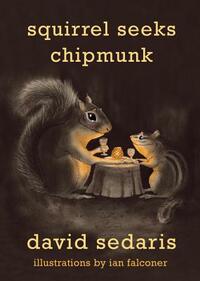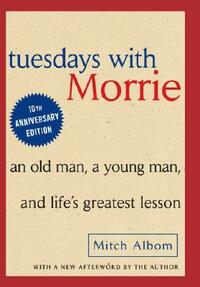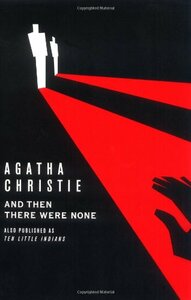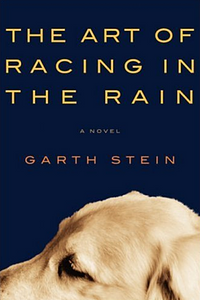You need to sign in or sign up before continuing.
Take a photo of a barcode or cover
jonscott9's Reviews (211)
This piece got me into it:
http://www.guardian.co.uk/books/2010/oct/11/david-sedaris-interview-hadley-freeman
Think of it as Aesop's Fables on acid. I was reminded of Watership Down too.
That'd be a good battle, the fiendish killer rabbits from that socialism allegory in a fight to the death with some of the villainous critters from this "modest bestiary." Not sure who'd win. I don't want to meet any of them in a dark forest.
My meandering mind aside, it's a collection of (very) short stories, anthropomorphic tales of greed, stupidity, gullibility, and cruelty. So, all too human, in truth. These bite-sized stories (most are 7-10 pages in length, which very much aids my ADD) are often darkly funny, sometimes cringe-inducing, and basically always end poorly for someone. Animals -- squirrels, chipmunks, birds of all kinds, bears, and more -- pay with their lives or their hearts.
The accompanying illustrations are fun and fretful at once. The coloration of them is black and white, plus red (of course). Very effective. Chilling in a couple places ... or maybe I just have a beating human heart yet.
This is new ground for Sedaris, and the article linked above is a good gateway to reading these grisly, macabre accounts of how living beings seek to hurt each other, physically and emotionally, to get what they want. A couple of these yarns feel incomplete, but some of the abruptness is surely intended. In the end, a slightly unnerving bag of amuse-bouches.
http://www.guardian.co.uk/books/2010/oct/11/david-sedaris-interview-hadley-freeman
Think of it as Aesop's Fables on acid. I was reminded of Watership Down too.
That'd be a good battle, the fiendish killer rabbits from that socialism allegory in a fight to the death with some of the villainous critters from this "modest bestiary." Not sure who'd win. I don't want to meet any of them in a dark forest.
My meandering mind aside, it's a collection of (very) short stories, anthropomorphic tales of greed, stupidity, gullibility, and cruelty. So, all too human, in truth. These bite-sized stories (most are 7-10 pages in length, which very much aids my ADD) are often darkly funny, sometimes cringe-inducing, and basically always end poorly for someone. Animals -- squirrels, chipmunks, birds of all kinds, bears, and more -- pay with their lives or their hearts.
The accompanying illustrations are fun and fretful at once. The coloration of them is black and white, plus red (of course). Very effective. Chilling in a couple places ... or maybe I just have a beating human heart yet.
This is new ground for Sedaris, and the article linked above is a good gateway to reading these grisly, macabre accounts of how living beings seek to hurt each other, physically and emotionally, to get what they want. A couple of these yarns feel incomplete, but some of the abruptness is surely intended. In the end, a slightly unnerving bag of amuse-bouches.
As with any good sendup, this book and author harbor a not-so-secret affinity for the subject of its spite/barbs.
I laughed a couple times, probably; I chuckled a few times; and I smiled a lot. I was never offended (well, duh).
A good format in starting chapters with drawings of (white) people from various cities in the U.S. and Canada, spotlighting key attire and possessions that those folks prefer. Right on in a lot of cases. What to say? People are predictable. A lot of stereotypes are flat-out true.
Some great illustrations and boxes too: Ideal TV Lineup for White People, Acceptable Reasons for a White Breakup (AOL/Hotmail email addy, finding Da Vinco Code on the shelf or Dave Matthews in CD collection), Stuff White People Think *You* Like (for African Americans, Latinos, et al), Perfect White Party Games, and a diagram of How to Win an Argument with a White Person
*ENTRIES THAT I FOUND SPOT ON OR THAT CRACKED ME UP: Conan O'Brien, Duke Basketball, Flea Markets, Sea Salt, Ugly Sweater Parties, Monty Python, Improv, Anthropologie, Trader Joe's, Roller Derby, Black Music That Black People Don't Listen To Anymore, Where The Wild Things Are, Expensive Versions of Cheap Food, Punctuality, Taking A Year Off, The Office (UK/US), Being Offended (but not for themselves), Portland Oregon, IKEA
*ITEMS THAT PINNED *ME* TO THE WALL: Unpaid Internships, Complaining About the Death of Print Media, British Slang, Messenger Bags, Promising to Learn a New Language, Berry Picking (in childhood), Self-Aware Hip-Hop References, Trivia, Whole Wheat, Short Stories, Alternative Newspapers, TOMS Shoes, Mad Men, Hating People Who Wear Ed Hardy, Facebook, The Winter Olympics
*WHAT I JUST DIDN'T/DON'T GET (YET?): Anthony Bourdain, Camping, Halloween, Frisbee Sports, Christopher Guest Movies, Not Vaccinating Children, Bob Marley, American Apparel, Huffington Post, Hummus, Olives, The Big Lebowski, Growing Their Own Food, Banksy, Whole Foods
And that is that. Hardly hugely important stuff, but stuff white folk like, nonetheless. Almost always amusing or funny, observant, sometimes quite insightful, and written in a deadpan or quietly sarcastic way that I appreciate.
Of course you don't ask too much of reads like these.
I laughed a couple times, probably; I chuckled a few times; and I smiled a lot. I was never offended (well, duh).
A good format in starting chapters with drawings of (white) people from various cities in the U.S. and Canada, spotlighting key attire and possessions that those folks prefer. Right on in a lot of cases. What to say? People are predictable. A lot of stereotypes are flat-out true.
Some great illustrations and boxes too: Ideal TV Lineup for White People, Acceptable Reasons for a White Breakup (AOL/Hotmail email addy, finding Da Vinco Code on the shelf or Dave Matthews in CD collection), Stuff White People Think *You* Like (for African Americans, Latinos, et al), Perfect White Party Games, and a diagram of How to Win an Argument with a White Person
*ENTRIES THAT I FOUND SPOT ON OR THAT CRACKED ME UP: Conan O'Brien, Duke Basketball, Flea Markets, Sea Salt, Ugly Sweater Parties, Monty Python, Improv, Anthropologie, Trader Joe's, Roller Derby, Black Music That Black People Don't Listen To Anymore, Where The Wild Things Are, Expensive Versions of Cheap Food, Punctuality, Taking A Year Off, The Office (UK/US), Being Offended (but not for themselves), Portland Oregon, IKEA
*ITEMS THAT PINNED *ME* TO THE WALL: Unpaid Internships, Complaining About the Death of Print Media, British Slang, Messenger Bags, Promising to Learn a New Language, Berry Picking (in childhood), Self-Aware Hip-Hop References, Trivia, Whole Wheat, Short Stories, Alternative Newspapers, TOMS Shoes, Mad Men, Hating People Who Wear Ed Hardy, Facebook, The Winter Olympics
*WHAT I JUST DIDN'T/DON'T GET (YET?): Anthony Bourdain, Camping, Halloween, Frisbee Sports, Christopher Guest Movies, Not Vaccinating Children, Bob Marley, American Apparel, Huffington Post, Hummus, Olives, The Big Lebowski, Growing Their Own Food, Banksy, Whole Foods
And that is that. Hardly hugely important stuff, but stuff white folk like, nonetheless. Almost always amusing or funny, observant, sometimes quite insightful, and written in a deadpan or quietly sarcastic way that I appreciate.
Of course you don't ask too much of reads like these.
(An interesting write-up, if you've read the book: http://www.ew.com/ew/article/0,,20366272,00.html)
The title might seem an oxymoron, but it's quite possible to be lonely without being alone.
Just ask Golden Richards. He's a Mormon who has four wives -- five before this novel is over -- and yet he's emotionally if not physically cheating on them all with Huila, the exotic wife of his construction-contract boss. Also, his project entails renovating a brothel in the desert. Never mind that he has nearly 30 offspring. Yes, talk about a messed-up life -- and quite the premise.
Which makes this book all the more disappointing. Considering the novel's breadth (600 pages!), it's quite sad that it doesn't roll along better. This is no The Book Thief, surely, not a cover-to-cover insomniac's lit dream. I did not tear through this read, as if one could considering the book's well-intended sprawl.
Maybe Udall (a very political Utah Mormon name, that) wanted an epic, cinematic length and feel to it all. That's not achieved, if so, though the book will likely be made into a movie soon enough. Honestly, I skipped chapters 23 through 36 (~200pgs) -- this because my bookclubbers told me I could do so without really missing anything -- and, aside from a couple notes given to me, I finished this gusty tome with nary a wonder about what had transpired outside of what I read.
I forget what the almost-poignant point was that I made at bookclub about this read, but so it goes. (Gail? Help?) In short ('cause I never am that, brief): The Lonely Plyg could've been much more sleek and with a greater impact were it 400 pages long instead.
There's both early and late-breaking tragedy here. The last go-round with familial loss is set up throughout the book fairly well but then still felt a bit cheap. Definitely a miss there on the author's part. If I'd stayed with this book continuously over the course of it, maybe the gravity of a few situations would have affected me more. As it is, no dice.
This is what I will take away from all these pages: One hilarious bedroom scene in which fourth and youngest wife Trish tries to seduce Golden. It involves chewing gum, and it made me laugh out loud twice.
The title might seem an oxymoron, but it's quite possible to be lonely without being alone.
Just ask Golden Richards. He's a Mormon who has four wives -- five before this novel is over -- and yet he's emotionally if not physically cheating on them all with Huila, the exotic wife of his construction-contract boss. Also, his project entails renovating a brothel in the desert. Never mind that he has nearly 30 offspring. Yes, talk about a messed-up life -- and quite the premise.
Which makes this book all the more disappointing. Considering the novel's breadth (600 pages!), it's quite sad that it doesn't roll along better. This is no The Book Thief, surely, not a cover-to-cover insomniac's lit dream. I did not tear through this read, as if one could considering the book's well-intended sprawl.
Maybe Udall (a very political Utah Mormon name, that) wanted an epic, cinematic length and feel to it all. That's not achieved, if so, though the book will likely be made into a movie soon enough. Honestly, I skipped chapters 23 through 36 (~200pgs) -- this because my bookclubbers told me I could do so without really missing anything -- and, aside from a couple notes given to me, I finished this gusty tome with nary a wonder about what had transpired outside of what I read.
I forget what the almost-poignant point was that I made at bookclub about this read, but so it goes. (Gail? Help?) In short ('cause I never am that, brief): The Lonely Plyg could've been much more sleek and with a greater impact were it 400 pages long instead.
There's both early and late-breaking tragedy here. The last go-round with familial loss is set up throughout the book fairly well but then still felt a bit cheap. Definitely a miss there on the author's part. If I'd stayed with this book continuously over the course of it, maybe the gravity of a few situations would have affected me more. As it is, no dice.
This is what I will take away from all these pages: One hilarious bedroom scene in which fourth and youngest wife Trish tries to seduce Golden. It involves chewing gum, and it made me laugh out loud twice.
Albom's first book will likely stand as his best by far.
This wee read about the author's aged, dying mentor and the perspectives he passed on to him will warm the coldest cynic out there. (Or not.) It contains some good thoughts and lessons. That's not to say that you'll remember them five years later, but they'll sound good at the time. It's a rather humanist point of view -- I'm not sure where the compass is exactly for Morrie types -- but the moral of the story is universal: Live well. Whatever that means for you, live well.
I wouldn't read anything else from this guy, though. I shudder to think of his following books. (He's Exhibit A for how one hit book scores an author a publishing deal in which he may forever bask in feel-good mediocrity.)
This is The Little Book That Could, and Can, and Will -- if you let it. Just don't expect way too much from it.
This wee read about the author's aged, dying mentor and the perspectives he passed on to him will warm the coldest cynic out there. (Or not.) It contains some good thoughts and lessons. That's not to say that you'll remember them five years later, but they'll sound good at the time. It's a rather humanist point of view -- I'm not sure where the compass is exactly for Morrie types -- but the moral of the story is universal: Live well. Whatever that means for you, live well.
I wouldn't read anything else from this guy, though. I shudder to think of his following books. (He's Exhibit A for how one hit book scores an author a publishing deal in which he may forever bask in feel-good mediocrity.)
This is The Little Book That Could, and Can, and Will -- if you let it. Just don't expect way too much from it.
A good entry point to Christie's stuff. Rousing fun with the murder mysteries, though the ending didn't quite have the punch or the twist that I expected and desired. (And I didn't/don't need a cheap Dan Brown-esque cliffhanger at the end of every three-page chapter.) I'm sure her other books are similar day-trip or vacation reads when one craves something light and jouncy and yet dark and slinky.
Also, I love this book's cover.
Also, I love this book's cover.
This is a tight, dear book, especially for those who have pets, have historically had pets (I'm in that group), and have lost pets. Loved the pup as narrator, reminiscent of the inventive, brilliant way in which Death Himself narrated The Book Thief, a young-adult tome that I relished. The protagonist, a trying-to-make-it car mechanic-cum-racecar driver, quickly gains the reader's empathy. He's a damn good man, if not in that so-obvious larger-than-life-hero Atticus Finch type of way. (But what did C.S. Lewis write? "There are no ordinary people. You have never talked to a mere mortal.")
I won't say more. If this book and this sliver of a review pique your interest, just read it.
I won't say more. If this book and this sliver of a review pique your interest, just read it.
Another sturdy collection of poems from the stalwart Kentuckian. Not many here grabbed me as others have (those in Given, for one), but these tender meditations on life both spiritual and bucolic are well worth anyone's time. We homo sapiens could stand to stop and smell the roses—whether lush or frozen or dead or just returning—more often. Berry is amazing at doing just that. The mundane becomes the mountainous by this man's pen, and always rightfully so. His poems are earnest but never overreaching, and, anyway, he quietly lives and writes by the notion that "A man's reach will always exceed his grasp."
It's good to read from older, wiser people. And this guy is so very wise.
My favorite WB poem, for what it's worth:
http://www.panhala.net/Archive/Sabbaths_1999_II.html
It's good to read from older, wiser people. And this guy is so very wise.
My favorite WB poem, for what it's worth:
http://www.panhala.net/Archive/Sabbaths_1999_II.html
Intriguing premise. Novel interviews. Constantly enjoyed it.
"I doggedly asked each PennySaver seller if they used a computer. They mostly didn't, and though they had a lot to say about other things, they didn't have much to say about this, this absence. I began to feel that I was asking the question just to remind myself that I was in a place where computers didn't really matter, just to prompt my appreciation for this. As if I feared that the scope of what I could feel and imagine was being quietly limited by the world within a world, the internet. The things outside of the web were becoming further from me, and everything inside it seemed piercingly relevant. The blogs of strangers had to be read daily, and people nearby who had no web presence were becoming almost cartoonlike, as if they were missing a dimension.
"I don't mean that I really thought this, out loud; it was just happening, like time, like geography. The web seemed so inherently endless that it didn't occur to me what wasn't there. My appetite for pictures and videos and news and music was so gigantic now that if something was shrinking, something immeasurable, how would I notice? It's not that my life before the internet was so wildly diverse — but there was only one world and it really did have every single thing in it. Domingo's blog was one of the best I've ever read, but I had to drive to him to get it, he had to tell it to me with his whole self, and there was no easy way to search for him. He could be found only accidentally.
"Scientifically, my interviews were pretty feeble, as questionable as 'The Missing Movie Report,' but one day soon there would be no more computerless people in Los Angeles and this exercise wouldn't be possible. Most of life is offline, and I think it always will be; eating and aching and sleeping and loving happen in the body. But it's not impossible to imagine losing my appetite for those things; they aren't always easy, and they take so much time. In twenty years I'd be interviewing air and water and heat just to remember they mattered."
"I doggedly asked each PennySaver seller if they used a computer. They mostly didn't, and though they had a lot to say about other things, they didn't have much to say about this, this absence. I began to feel that I was asking the question just to remind myself that I was in a place where computers didn't really matter, just to prompt my appreciation for this. As if I feared that the scope of what I could feel and imagine was being quietly limited by the world within a world, the internet. The things outside of the web were becoming further from me, and everything inside it seemed piercingly relevant. The blogs of strangers had to be read daily, and people nearby who had no web presence were becoming almost cartoonlike, as if they were missing a dimension.
"I don't mean that I really thought this, out loud; it was just happening, like time, like geography. The web seemed so inherently endless that it didn't occur to me what wasn't there. My appetite for pictures and videos and news and music was so gigantic now that if something was shrinking, something immeasurable, how would I notice? It's not that my life before the internet was so wildly diverse — but there was only one world and it really did have every single thing in it. Domingo's blog was one of the best I've ever read, but I had to drive to him to get it, he had to tell it to me with his whole self, and there was no easy way to search for him. He could be found only accidentally.
"Scientifically, my interviews were pretty feeble, as questionable as 'The Missing Movie Report,' but one day soon there would be no more computerless people in Los Angeles and this exercise wouldn't be possible. Most of life is offline, and I think it always will be; eating and aching and sleeping and loving happen in the body. But it's not impossible to imagine losing my appetite for those things; they aren't always easy, and they take so much time. In twenty years I'd be interviewing air and water and heat just to remember they mattered."
One thing I really appreciate about this man is his knack for a timely, creative analogy. He's a master at dispensing those, and they just make sense. He always helps me see the world in a new way, one that at the same time feels very familiar but that I couldn't express in thought or word.
He also comes off as strikingly humble given his scholarship, accolades, and all. This is one of Lewis's benchmark works. It will endure as long as this world does, or as long as there are books. Enough "meat" here in his theological reasoning to have my mind munching on the stuff for weeks, or really, for the rest of my life.
He also comes off as strikingly humble given his scholarship, accolades, and all. This is one of Lewis's benchmark works. It will endure as long as this world does, or as long as there are books. Enough "meat" here in his theological reasoning to have my mind munching on the stuff for weeks, or really, for the rest of my life.
Fantastic street-style photographer—and he's a native Hoosier at that.
http://www.indianapolismonthly.com/the-thread/the-sartorialist-clothes-encounters/
http://www.indianapolismonthly.com/the-thread/the-sartorialist-clothes-encounters/









